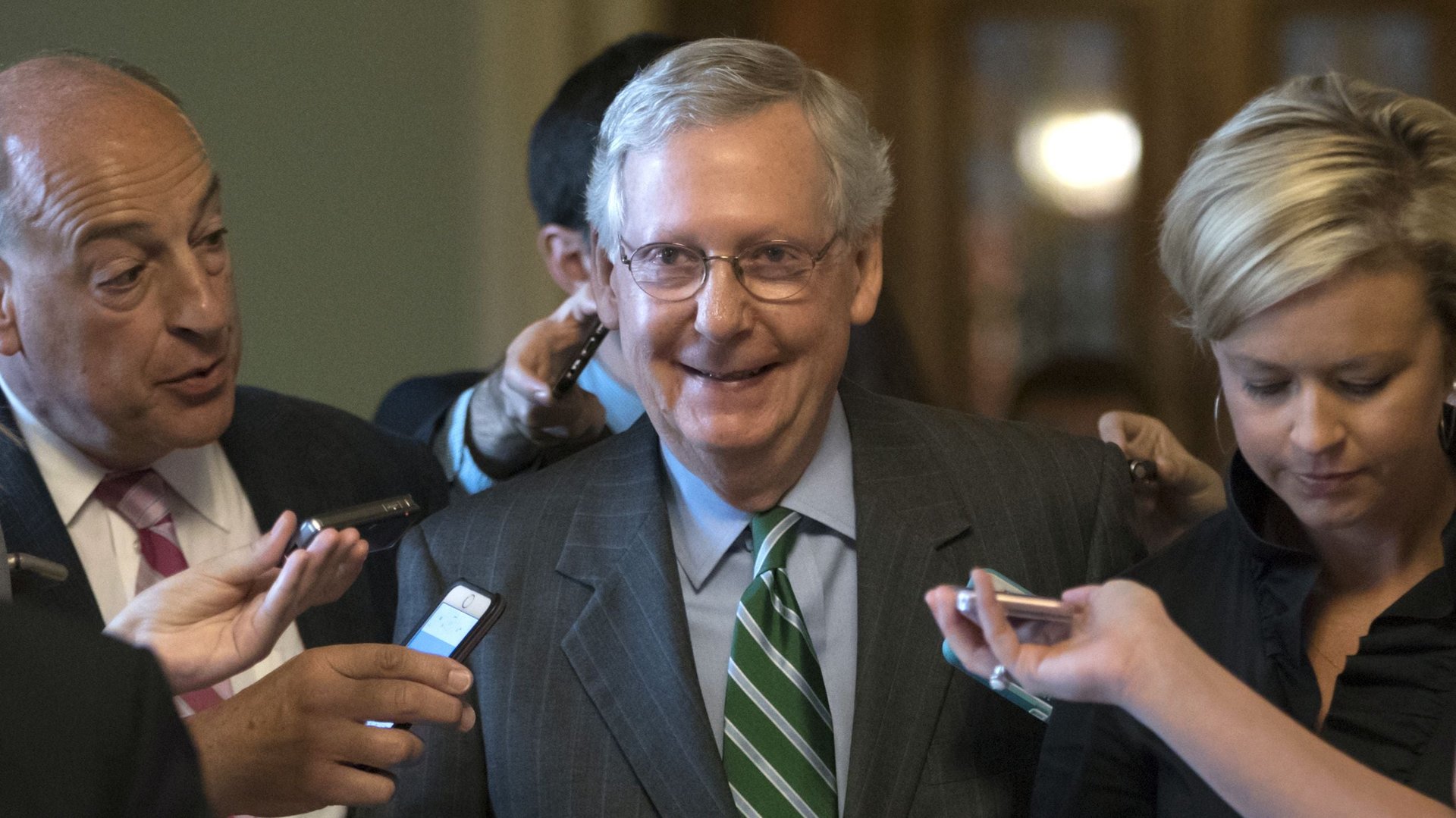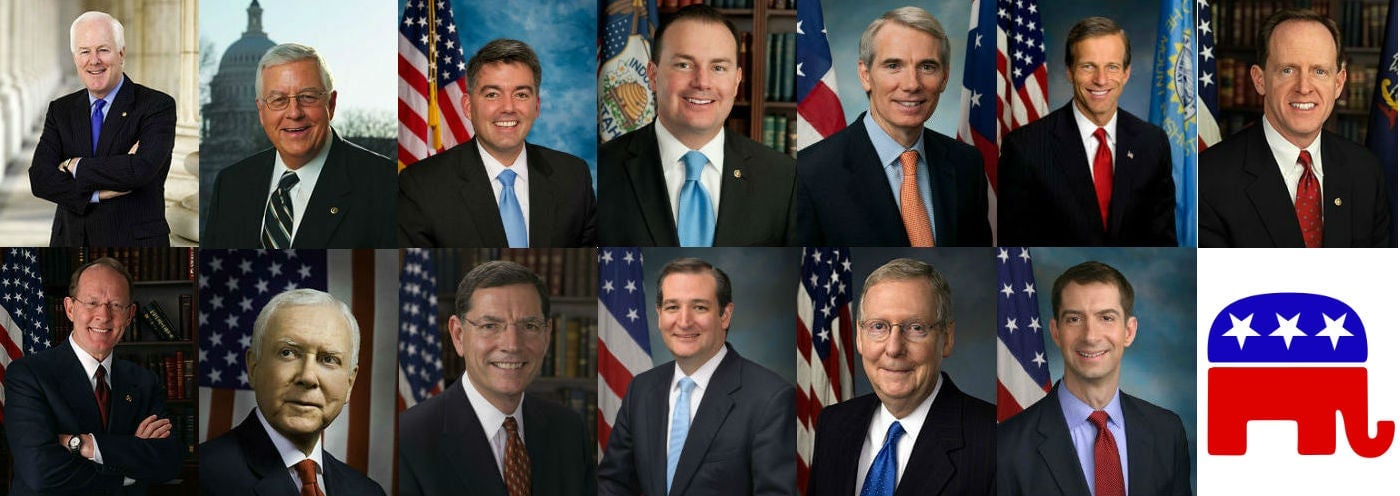13 men crafted a health care bill that is even worse for women than the House AHCA
The Senate’s long-awaited version of Obamacare reform was published today (June 22), and, like the House bill that was passed in May, it will cut health care benefits for the poor, make them more expensive for the elderly, and lower taxes for the rich. But women, and especially women who are not wealthy, will be especially hard-hit by the Senate bill.


The Senate’s long-awaited version of Obamacare reform was published today (June 22), and, like the House bill that was passed in May, it will cut health care benefits for the poor, make them more expensive for the elderly, and lower taxes for the rich. But women, and especially women who are not wealthy, will be especially hard-hit by the Senate bill.
Perhaps that shouldn’t be a surprise, given the bill was formed behind closed doors, by a group of 13 senators, which included three Johns, two Mikes, and no women at all:

Like the earlier House version, the Senate’s bill allows states to choose what they want to make insurance companies cover, instead of covering a list of “essential” health services under Obamacare. Those essential services include maternity and newborn care, and this change may affect women who have employer-provided insurance, as well as those who are using Medicaid or Obamacare.
Under Obamacare, insurance companies were banned from refusing to insure people with “pre-existing conditions,” which could include domestic violence, sexual assault, and having a Cesarean section. The Senate bill includes that ban, but it allows states a back-door way to go around the ban, by also allowing insurers to cap lifetime spending on non-essential services.
Like the House bill, the Senate’s option would drastically cut Medicaid, whose users are two-thirds female, ending coverage for some 11 million users. The Senate bill takes longer to do it, phasing out the cuts through 2024, but they could be even deeper. Overall, 39% of low-income American women of reproductive age (15 to 49) are covered by the program, or about 9.8 million women.
The Senate bill would take all federal funding from Planned Parenthood for a year, which provides 2.4 million men, women, and children annually with birth control, sexually-transmitted disease treatment, and preventative checkups.
The House bill earmarked $15 billion a year in state subsidies for high-risk individuals, substance abusers, and maternal and newborn care. The Senate bill’s only special subsidy is $2 billion, for substance abusers. All in all, 13 million women could lose maternity care coverage under the bill, Planned Parenthood estimates.